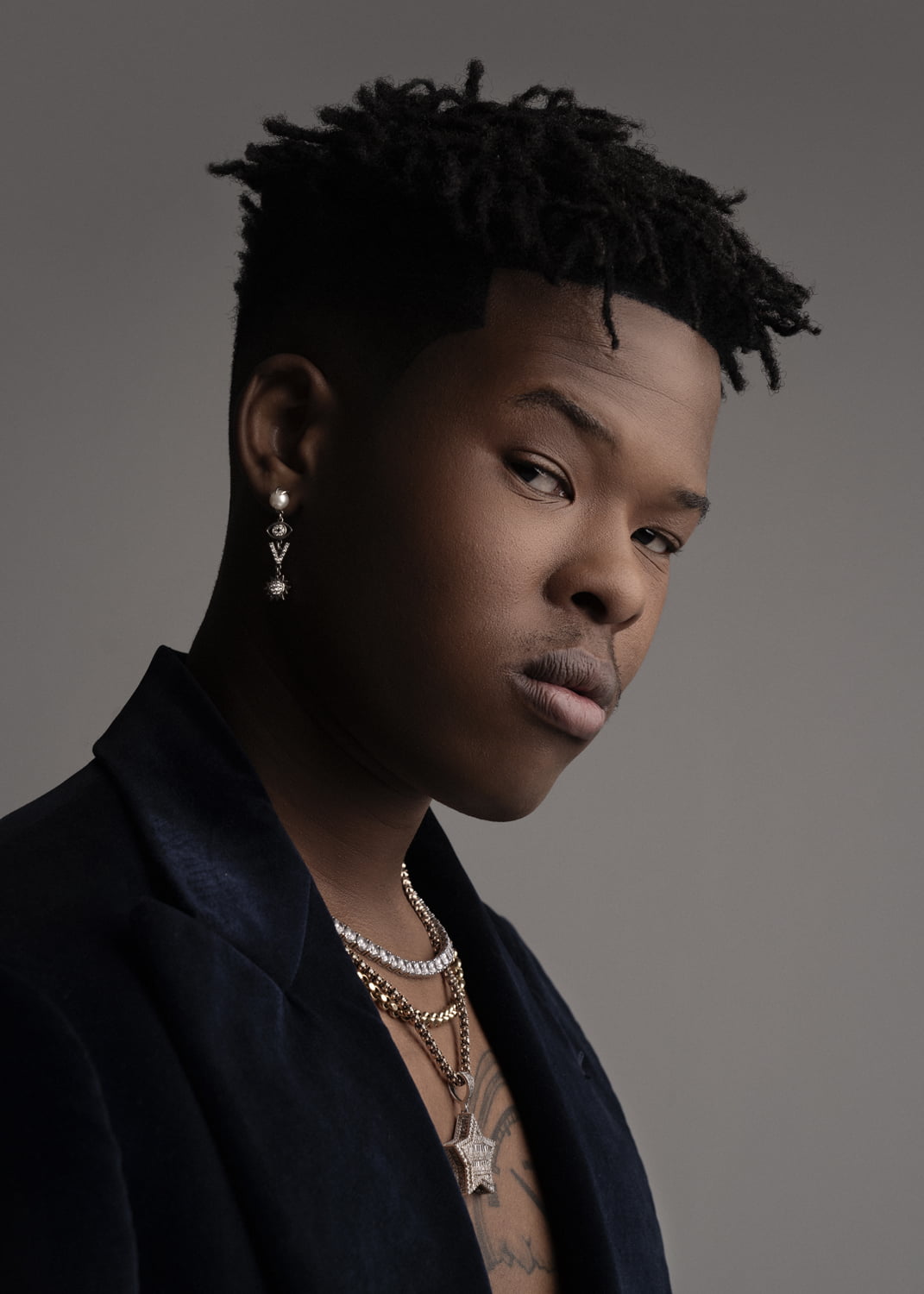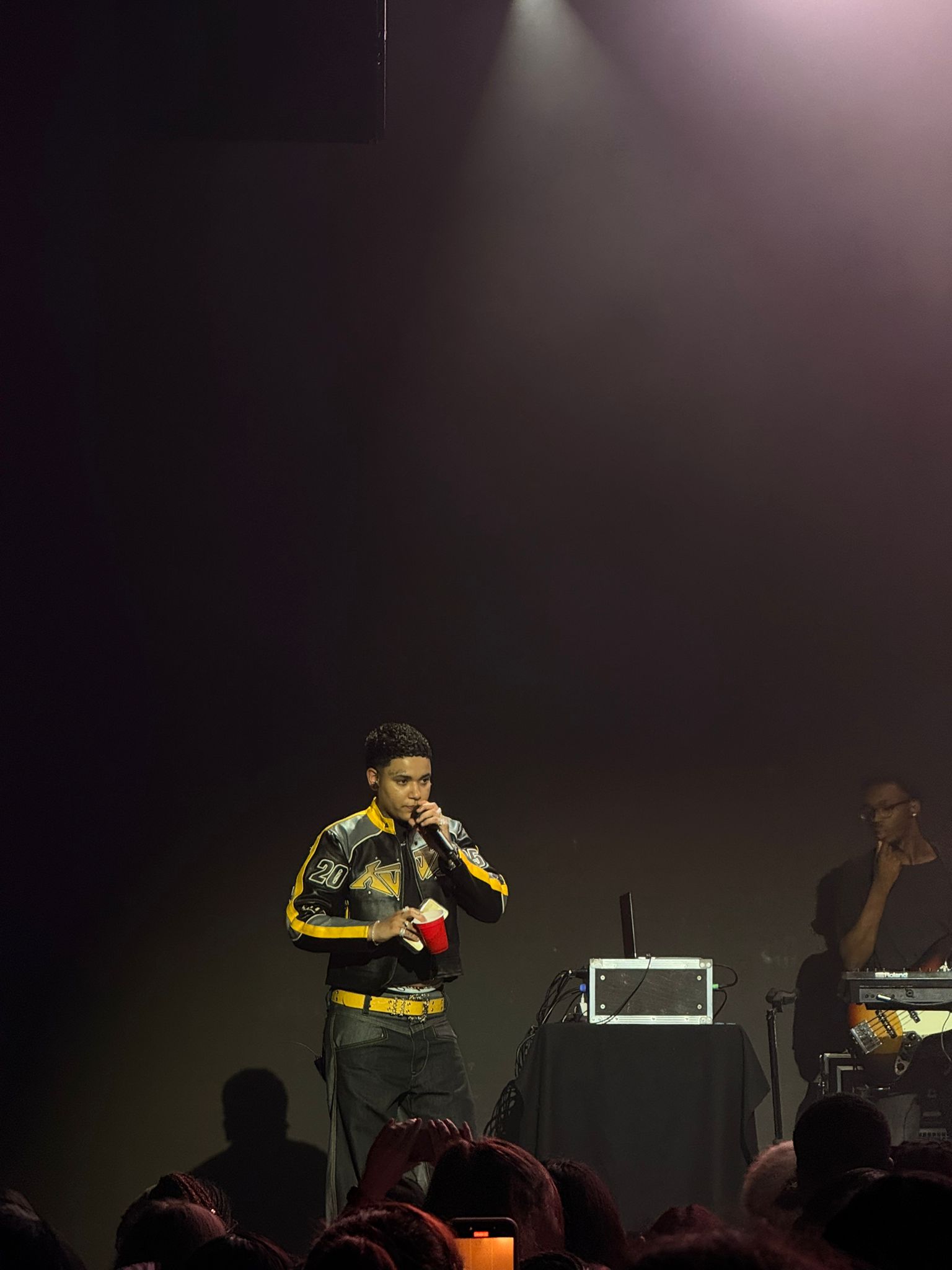If anybody has ever stepped foot in South Africa you will know that music is a huge part of the culture that permeates throughout the country.
The names Black Coffee, Cassper Nyovest, Kwesta, Sho Madjozi, Amanda Black, Babes Wodumo, Distruction Boyz are just a few of the artists who have contributed to a music scene that has been thriving for some time. And whilst the eye on Africa in terms of music is very much centered in the West with the growth and ever-growing popularity and influence of Afrobeats. It is no secret that for those that know South Africa has been a place to watch.
And one of the many artists who has been thriving within the hip-hop since the age of 19 is Durban-born rapper Nasty C. As a young rapper Nasty C broke on the rap scene of South Africa and since then has been unstoppable. 2020 alone has seen Nasty C sign a record deal with the newly formed Def Jam Africa that is taking him to the international landscape. Along with his third studio album Zulu Man With Some Power which was released last summer, a Netflix documentary Zulu Man in Japan followed his journey exploring the cultural landscape that is Japan discovering new sights and working with some of Japan’s young musical talent.
With the release of his latest single Black and White which featured US R&B singer Ari Lennox and the music video which has just arrived. We caught up with Nasty C to reflect on what 2020 was like for him, going to Japan, working with Ari, taking South African’s music to international heights and more.
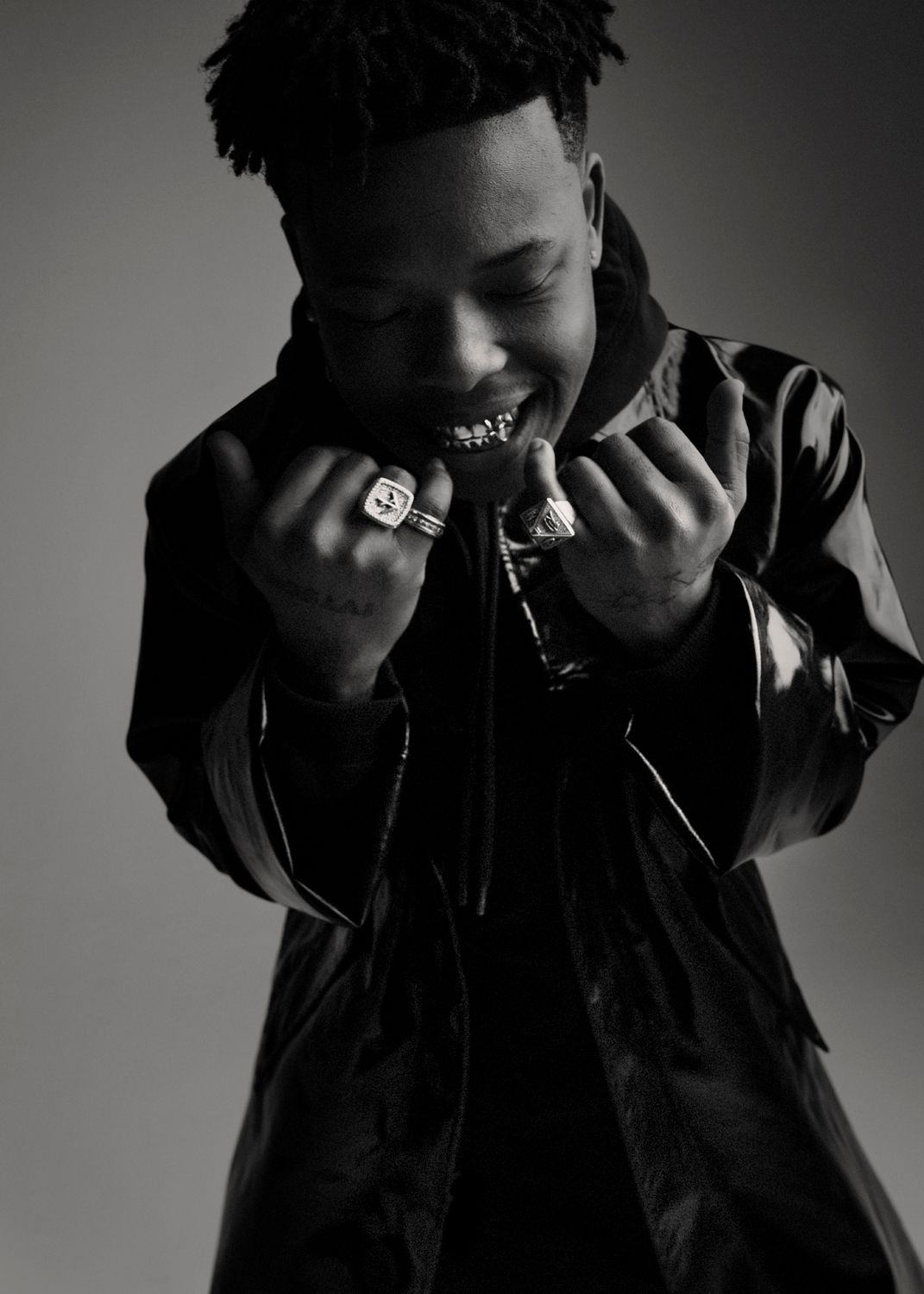
First of all congratulations on everything last year. With everything that happened I know you were quite busy, you released the album, put out your documentary? How was everything for you?
Well I mean it was good for me with everything that you mentioned, at the same time it was challenging but just the ability to adapt to the situation of what’s going on and this whole shift in our tools as artists has been an experience. I would say last year has actually felt like work, and normally for me, music doesn’t feel like a job but this time around it actually did.
And as an artist and somebody who has been creating work during this time, how has that been against the context of everything and did you find your process changed?
In terms of creating I’m someone who is basically recording every day, so you know in that regard it’s pretty much been the way it is every other year, regardless of these political extreme events and COVID. With creativity it gets to a place where you have to push harder it’s like a muscle where you have to keep going at it. You might run out of inspiration or feel like you are doing the same thing over and over, and that is natural. I would say that I experienced that this year more than usual because it was harder to regain that inspiration and that motivation while being stuck in the house. It was nothing new but it was a taste of what happens if you are a creative in general and you need that inspiration and you are boxed in a house.
You put out the album your third album Zulu Man With Some Power last year and so just releasing music in this time what was that like for you?
In terms of releasing it was tricky because I feel like a lot of us thought that people being stuck in a house would mean that everybody would be glued to their screens, and so we thought we would find more consumers and that people would be consuming things a lot more. However, what actually happened is that because of all the events happening in the world there was too much going and because weren’t able to go inside they relied more on their phones for stuff like news and updates. So rather it be for purely entertainment like it would be normally, it was much more about other things, and so what we thought would happen didn’t and we found ourselves having to work harder to think of ways to get our stuff out there. So, it was a challenge in its own respect which is just one of those things that we just had to adapt and find ways to counteract against all those challenges.
So speaking on the album and the fact that it has been out for a few months now. Has the reaction been what you expected, or has it has different to what your expectations for it were?
It was a little different, not just because of what I had to offer with the album. I think it was more of what people expected from it. I think people kind of forgot who I was as a person and as an artist and because of the title and how bold it is people immediately started assuming I was going to put out an album that was very Zulu orientated. They thought it was going to be heavily themed in cultural things and I understand in the way I titled the album and the message I wanted it to carry, it’s something that is very important to me especially right now in this phase of my career and crossing over in being a global artist. I wanted to make sure that my first international release has something about my culture in it. It wasn’t about telling people what a Zulu man is and teaching Zulu culture, that’s not what I was trying to do, but for some that’s how they saw it. So when they heard it and it wasn’t there that’s where there was a bit of a thing. But infact it didn’t have any of that.
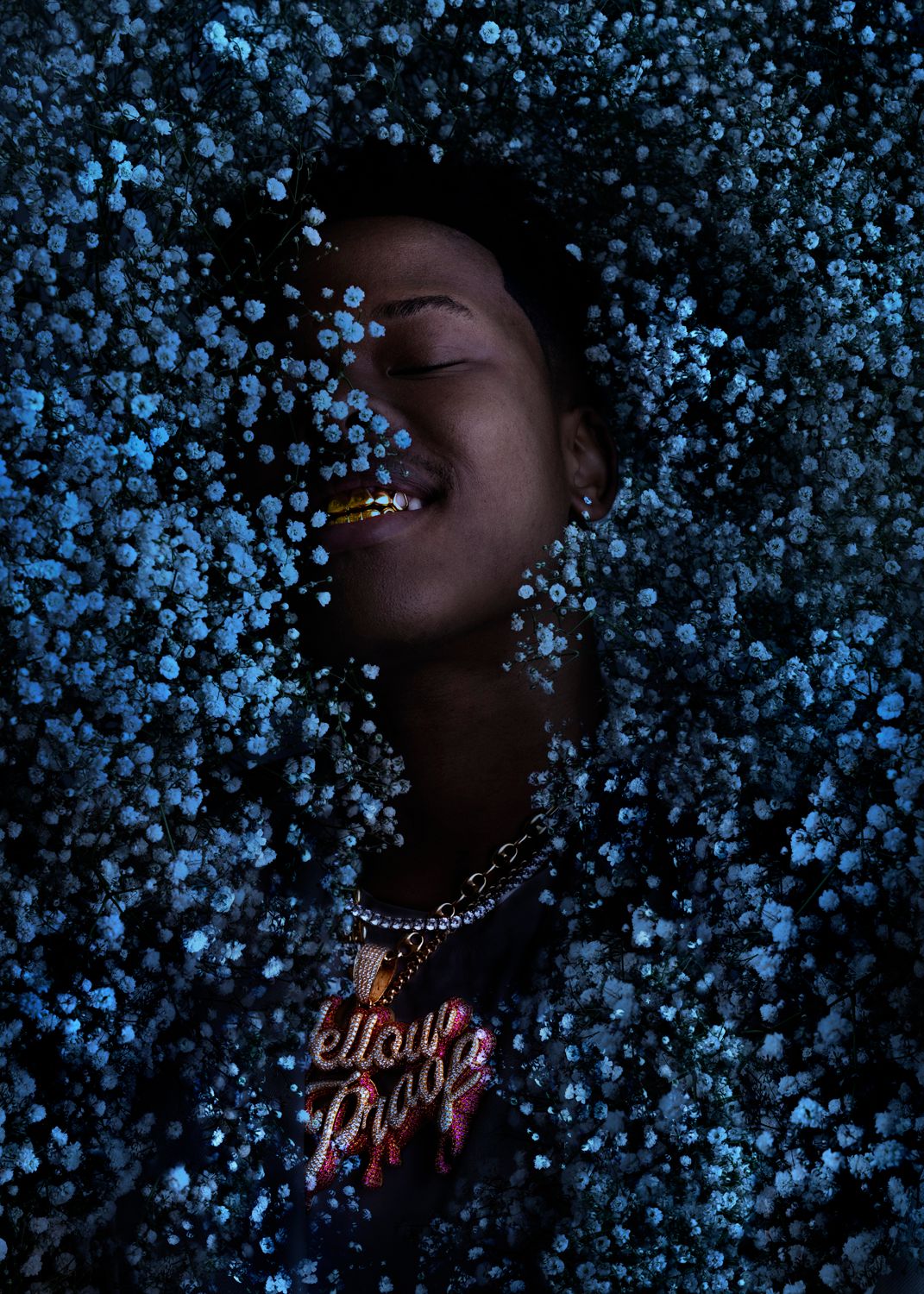
What would you say were some of your influences for the album?
I was in a very good space, especially creatively for this album so I was really experimenting with wordplay, the way I structure my sentences, the things I chose to speak about. I remember I watched a video a long time when I was back in Durban that was like hacks to writing relatable lyrics and how to catch peoples attention, and one of the tips was to write something that is very basic and real and that people can get it at first listen, but also rephrase it so that when they hear it, it hits them differently in a way that they have never heard it before that way. The same way how quotes on Instagram get you, even though it’s something you’ve heard before because it’s structured in such a perfect way it ends up coming out perfectly. So I feel like that’s always been my take and with the album that’s what I tried to do a lot, I said some pretty basic stuff but the way I put it in was meant to be quotable, you can use it on your captions, you can use it as your mantra if you want. I didn’t want to create something that was one-dimensional, I wanted to have a project you could listen to as a whole and that depending on your mood you could listen to a few different tracks depending on how you are feeling. It doesn’t have to all be hard stuff, it is not an everyday party vibe but also songs for driving in your car, or whatever you are feeling you are still able to listen to it.
Your collaborations on this album were really strong and you’ve always had worked with good people, even locally on your previous projects. So with the people you teamed up with on this project, how did they come about?
In terms of the collaborations on this project, everything fell in place naturally. I would say these were all people who I met along the way as I was making the album and traveling back and forth, and the synergy was right where I needed it to be. So I just decided to add them to the project, and it is not something that was preconceived or planned in any way. They just came together and brought something extra to the album.
One of your collaborations was with Ari Lennox on Black and White. So, let’s talk about the song and getting Ari Lennox it. How did that happen?
So when I did the song I was in Atlanta, it was a week where I was in the studio back to back so I was just making music and I was inspired, I had this intense creative high and that was one of the songs I just happened to make. When the song was done it had two verses, a bridge and it was complete. Then a couple of weeks later when I was back in SA I got a call saying that Ari was down to work with me, she liked the music and instead of waiting for the perfect time I sent her something that I already had which I thought could work. It worked out perfectly.
The video is out now, in terms of the concept and its relation to the song how did you create that?
I feel like I wanted something for this song that would be very simple and straight to the point. Something that feels like it goes with the song, something that wouldn’t be too artistic or too abstract, or you know people feeling they were watching a mash-up of clips that make no sense. We decided to pick the whole long-distance relationship concept because it felt very true to what is going on right now in the world, with a lot of people separated by COVID and also it’s something that people go through, I’ve been through it myself and there are many ways that you can make it sweet and make it work, so we wanted to show that.
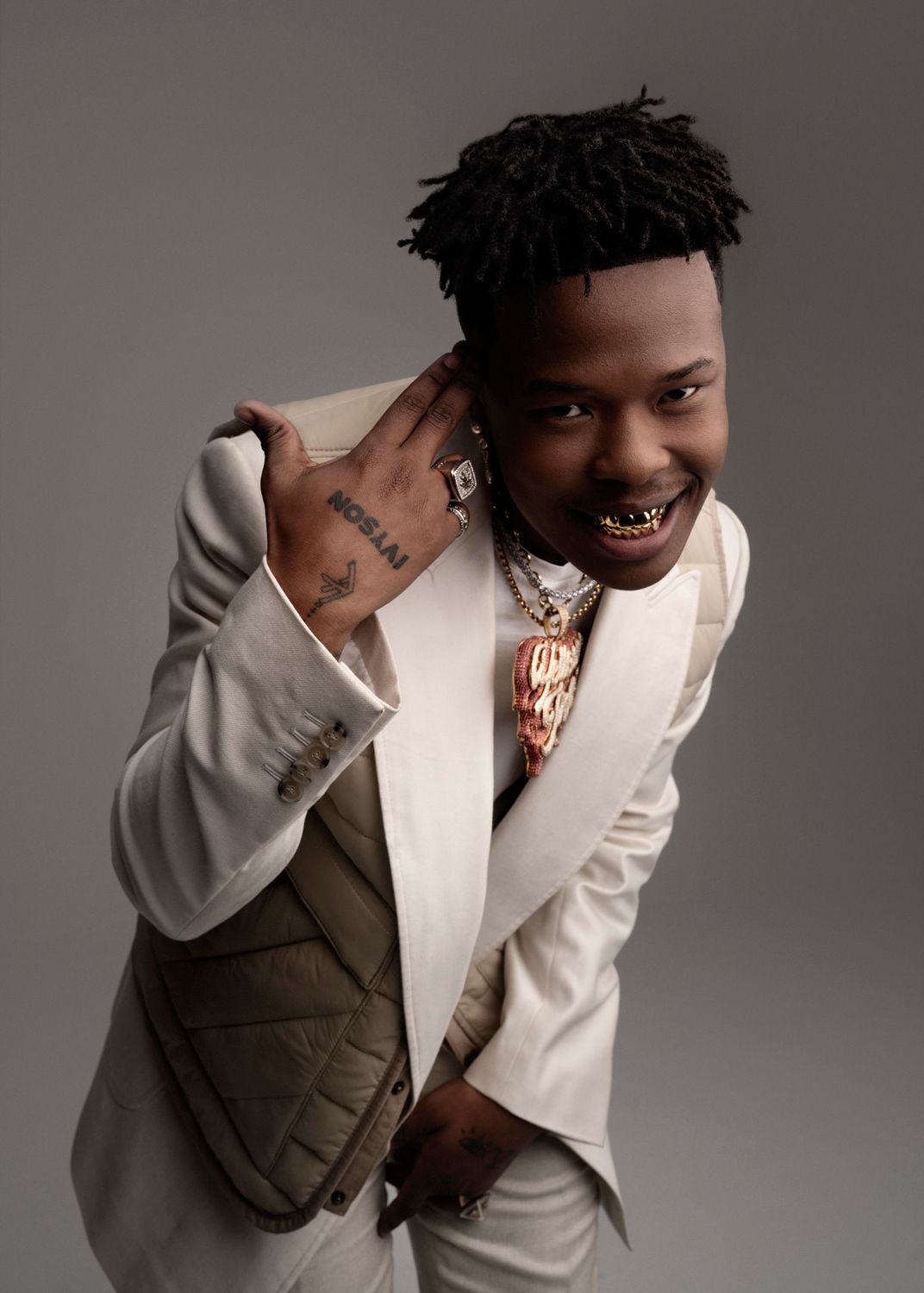
Shifting gears and talking about the documentary Zulu Man in Japan. What was that process like? And what drew you to Japan specifically?
I had always wanted to go to Japan because of the fashion for one, and two because of the art. I feel like the hub of art there in terms of Anime, drawings is something that I’ve always been interested in, as well as tech, I’m also a huge tech nerd. So, I wanted to go out there and get inspired and be surrounded by things I like. After I had been the first time I was taken aback by so much besides all the stuff I already mentioned. The energy I got from people; the way people respect each other. How humble they are, how welcoming they are, how people treat each other and respect people’s space and even that is not something I’m used to. I come from a place where I’m well known so the first thing people do is always come towards me and want to take pictures etc, so to be a place that was the opposite was something I very much needed. In terms of filming, we had already been shooting everything by the second trip. I shoot everywhere I go. By the third visit we decided to make it official and I just felt when I’m here I’m different. When I’m here I’m not afraid to say anything or dress in any way or come off as a happy person because it’s not a place where you have to maintain this image as a hip-hop artist that’s hard and aggressive all the time. So, we decided to capture this even if it wasn’t going to be something from my career, because it doesn’t really have anything to do per se with me as it’s more about how I see Japan from my eyes. It is about the culture and exploring that.
In the documentary we saw you working with Japanese artists, did you go there with making music in mind or was it just something that just happened when you were there?
We were trying to be spontaneous and be adventurous. I didn’t really know much of the music scene there, I knew there was music and there was a K-pop scene, but I didn’t know there were a lot of rappers out there or people making music similar to my sound. Literally, when we landed, we had no idea what to expect we were just taking it for what it was, embracing it all. We just put down a couple of dates, a few people to meet up with a couple of studios. Book this place, book that place and just go, don’t overthink whatever happens and that was very much the vibe.
Where would you like to explore next?
I’ve been to places like Germany where I didn’t know what to expect and I had such a good time. So now if I had to pick any place in the world right now I’d probably pick a random place, somewhere I know nothing about and just go experience it and you know grow and learn as I go. I’d probably say India just for the sake of it and just see what’s going on out there, I have no idea what’s going on with the music and I’d love to see what that’s about.
Just overall in your journey and everything that you’ve experienced and been through, what have you learned about yourself?
I’d say I’m learning to be patient with myself, with my career I’m learning how to take not external pressure seriously because it doesn’t really mean anything. Its’ always more about the other people anyway and what they want for you and them wanting music. So not putting pressure on myself and not to worry too much about what people say. Really just enjoy the ride and enjoy this experience it only comes once. I’m not going to relive this any other time so yeah that’s what I’ve learned.
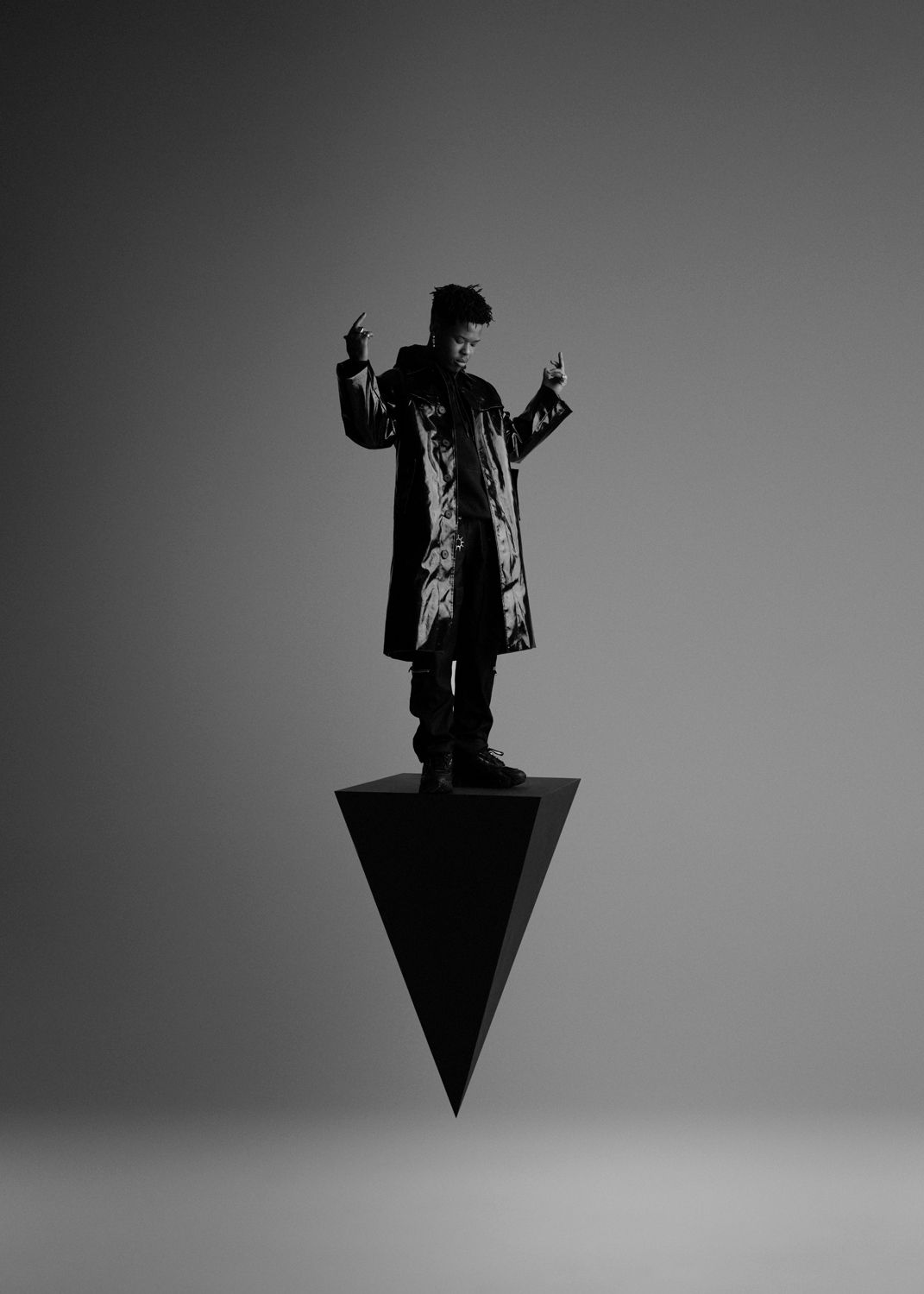
South Africa has always had its moments on a global level whether it be Gqom or Amapiano which seems to be the latest thing people are discovering. Where do you think the music is going? Do you feel like you have a responsibility to take that across international levels? How do you think as an artist in South Africa you can push that further?
I think that it’s something that will always be a part of me, and I think that all of us as artists have the responsibility to take this industry far. First of all we don’t have enough numbers to be the type of industry we could be. We don’t have those numbers and so we will suffer as artists as we won’t have the amount of success that we could have if we are only focused and dialed in on SA only. So, I think that artists need to first of all leave the country for a little bit, travel take the music somewhere else, there is no such thing as representing if you are still in the same place, who are you representing? Where are we representing that person? To whom? When you look at Afrobeats from Ghana and Nigeria that has been able to grow on such an international level that is because people have taken that music out of the country and you find them all over in the UK, in America, in Tokyo even and so anywhere they go the are putting their music out there across the continents and it spreads. That is one thing that will take us much higher when you think about here in SA it’ll grow our streaming numbers it’ll make people take us more seriously, it’ll give us an international appeal. We definitely have the potential to become great, we have the talent, we have the artists, we have all of it we just have to step out of the bubble, and you know go out there, see the quality and quantity that is out there.
And on that final note, what is next for you?
I just want to reach new heights; we have a lot of things planned obviously but in simple terms, I want to be able to represent South Africa and you know make it a norm for South African artists to get a platinum record internationally and make that a standard thing so that artists know what we can achieve and how high they can reach. Ultimately how hard they will have to work to make their music reach the heights. I just want to be a big artist you know.
Watch the video for ‘Black and White’ below, follow Nasty C via @nasty_csa
Interview Seneo Mwamba

